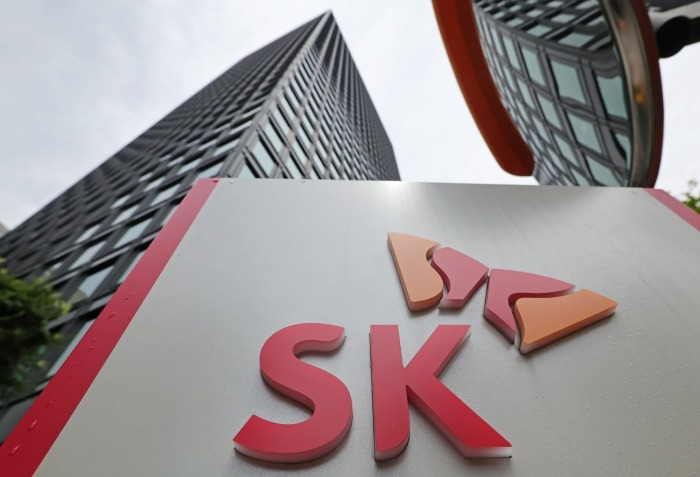SK Innovation Co., an intermediary holding company of South Korea's No. 2 business group, said on Wednesday it will merge SK On Co. with SK Enmove Co., a lubricant supplier, as part of efforts to return the electric vehicle battery maker to profitability.
Following their planned merger set to launch on Nov. 1, SK Innovation plans to raise 8 trillion won ($5.8 billion) in new capital through rights offerings, perpetual bond issues and derivative product sales.
Additionally, it seeks to divest non-core assets worth 1.5 trillion won within the year.
The proceeds will be used to repay debts and repurchase 3.59 trillion won worth of all convertible preferred shares held by financial investors, totalling 9.5 trillion won.
The merger is expected to bring the battery maker back to profitability after three years of losses. SK On will absorb SK Enmove at a ratio of 1:1.6616742.
The three SK arms approved the merger plan at their board meetings.
In detail, SK Innovation, which has both SK On and SK Enmove under its wing, plans to issue 2 trillion won worth of new shares and sell 700 billion won in new perpetual bonds.
They will be placed in eight affiliated companies, including its largest shareholder SK Inc.
SK Innovation is also seeking to raise 3 trillion won in new capital.
Additionally, SK On will raise 2 trillion won in rights offering in a private placement, while SK IE Technology Co. sells 300 billion won worth of new shares to three companies.
FINANCIAL INVESTORSIn 2023, SK On raised a combined 2.8 trillion won from financial investors:
1.2 trillion won from a consortium of MBK Partners, BlackRock and the Qatar Investment Authority; and an additional 1.2 trillion won from domestic investors such as Korea Investment Partners PE.
Under the terms of the agreement, SK Innovation must take SK On public by the end of 2026. If it does not materialize, the holding firm should repurchase its shares at a compounded annualized rate of 7.5%.
If that doesn’t work as well, the financial investors will be allowed to exercise drag-along rights to sell SK On shares, along with those held by SK Innovation, to a third party.
As SK On has accumulated losses due to a slowdown in EV demand, the IPO has been delayed.
Rather than invoking a drag-along sale clause triggered by the delayed IPO, SK Innovation decided to pay out the investors early, guaranteeing them an internal rate of return in the mid-9% range.
SYNERGY EFFECTFor SK Innovation, the rationale behind the SK On–SK Enmove merger is simple: bring a cash-generating business into the same entity as its cash-hungry battery unit.
SK Enmove generates more than 850 billion won ($655 million) in EBITDA annually – a steady source of cash that could help offset losses at SK On.
Combining the two entities also simplifies the group’s structure and reduces pressure to go public.
But the company appears to be playing the long game.
“They’ve bought themselves time and flexibility,” one industry analyst said. “Now the real test will be whether SK On can improve performance under this new structure.”
Write to Jun-Ho Cha at
chacha@hankyung.com






